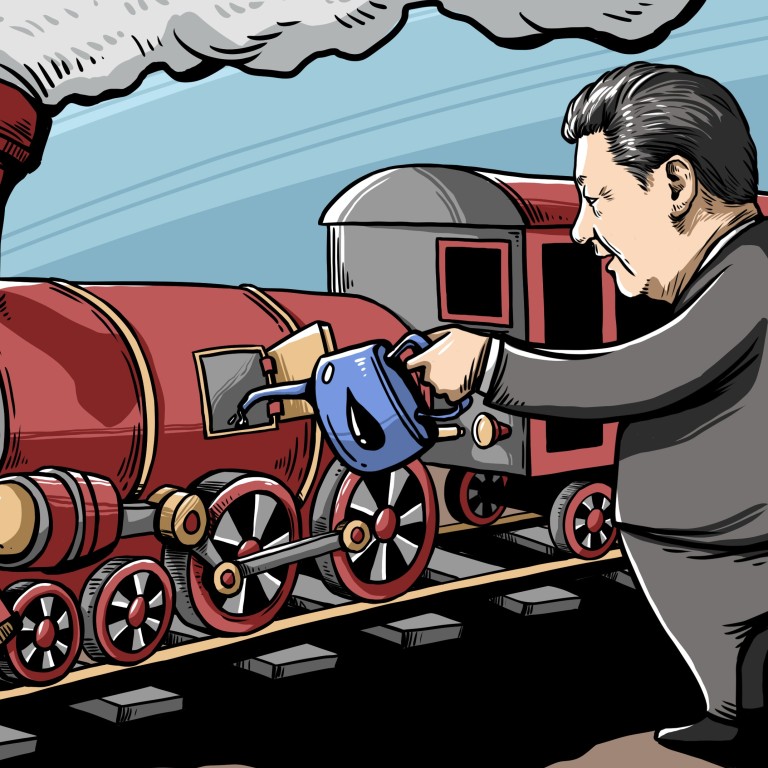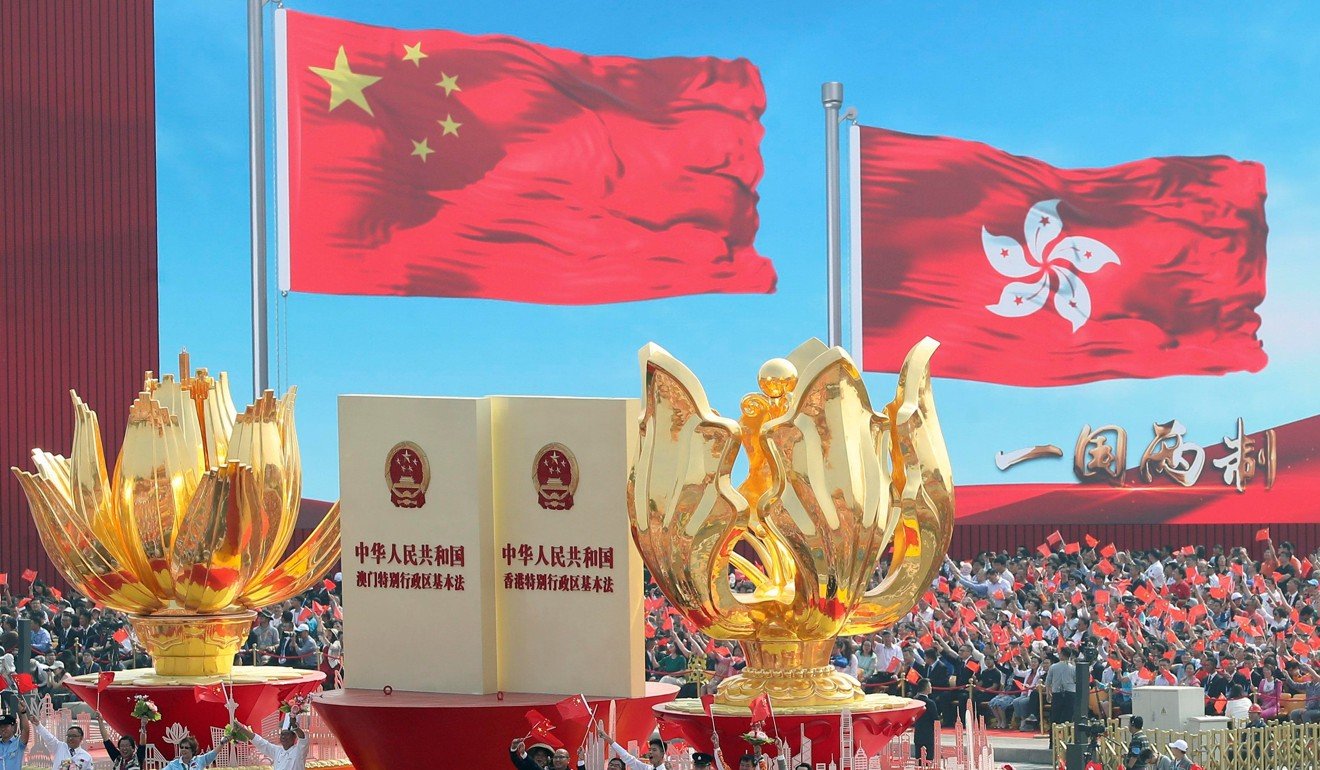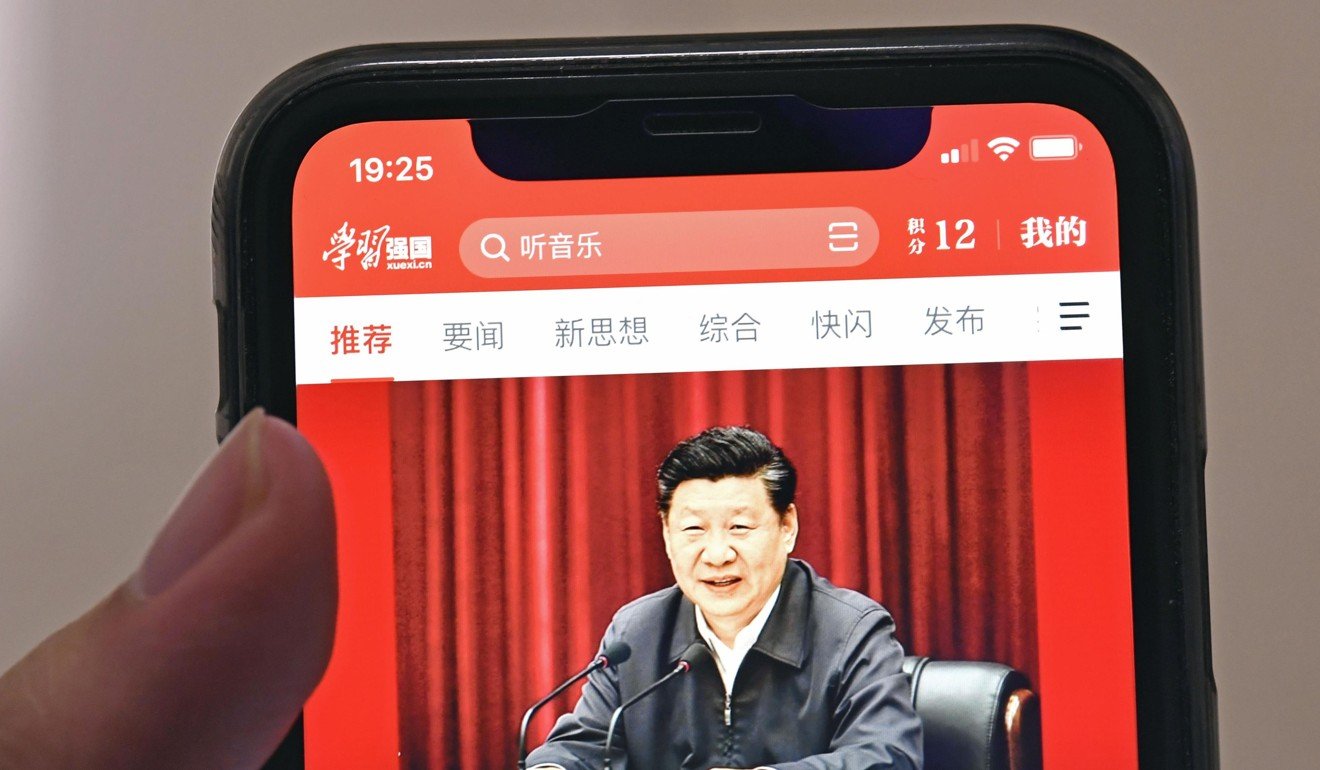
Soul-searching for China’s Communist Party elite as they consider way ahead
- This week’s plenum has the task of determining how to meet the party’s biggest challenge – itself
- Experts say the occasion will be used to further strengthen its grip on power
In a year of monumental challenges for China, what keeps President Xi Jinping awake at night is probably not the trade war with the United States, nor the economic downturn, nor even the festering social unrest in Hong Kong, but the Communist Party itself.
This week, China’s 300 or so of the party’s most powerful elites gather behind closed doors for a long-anticipated high-powered party meeting. As usual, it is shrouded in secrecy, with little information available other than an eye-watering line-up of “important issues concerning how to uphold and improve the socialist system with Chinese characteristics and make progress in modernising the country’s governance system and capacity”.
The meeting, also known as the fourth plenum, is an important occasion for the party elite to discuss, debate and forge consensus on some of the most critical issues.
Will China use long-awaited meeting to push ahead with economic reforms?
But, ultimately, it comes down to a matter of soul-searching for the world’s second longest-ruling party: after seven decades of unchallenged rule, how can it steer the world’s most populous nation through uncharted waters of uncertainty and challenges, in order to stay in power?
The country’s economic growth has plummeted to its slowest in nearly 30 years, exacerbated by a bruising trade war with the US. Demands on social welfare and quality of life are growing, with public health and environmental scandals frequently igniting public outrage.
Abroad, China’s activities are coming under increasing scrutiny from the West, as geopolitical and ideological tensions flare. And, in Hong Kong, the ongoing crisis has called into question the viability of “one country, two systems”, squandering all hopes of uniting with Taiwan under the same formula.
Communist Party elite to meet from Monday to set China’s agenda
In the lead-up to the plenum, the party’s leading theoretical journal Qiushi, or “Seeking Truth”, published a lengthy excerpt of a speech Xi gave to a group of senior officials in January last year, which had been kept secret until recently.
“I believe the only one who can defeat us is ourselves, no one else,” he said of the party, which boasts a membership of 90 million – larger than the population of Germany.
At the time of his speech, Xi had just emerged from the party’s 19th National People’s Congress more powerful than ever, with his allies dominating the party’s Politburo and its Standing Committee. A fortnight after the speech, that same group of officials was convened again to approve an amendment to the constitution, which removed the term limits of the presidency.

Back then, the onset of the trade war was still months away, and the party was confident about its global ambitions. On its front page, party mouthpiece People’s Daily triumphantly listed the numerous ills facing the world and its Western-centred order, declaring they had given China a “historic opportunity” to return to its rightful position and reshape the world order.
Complex challenges
But, even at a time of triumph, Xi was already sounding alarms about the long-term and complex challenges faced by the party.
After citing how the excesses of rulers and leaders had invariably led to the demise of China’s feudal dynasties and peasant uprisings, Xi highlighted how the bankruptcy of communist ideology had brought down the Soviet Union, a cautionary tale he and other Chinese leaders have repeatedly evoked over the years.
As a “red princeling”, or child of a revolutionary hero, Xi is haunted by a sense of crisis over the party’s survival. Since coming into power seven years ago, he has unleashed a series of campaigns to strengthen the party’s hold on power – as well as his own.
Ain’t no party like a Communist Party: the political ‘birthday’ guide
Since his first term, Xi has made “ruling the country by law” a cornerstone of his governance. While it may sound similar to the Western concept of “rule of law,” Xi and his officials have repeatedly clarified that the party does not believe in judicial independence, which China’s top judge once called “a Western trap.” Instead, it is clear that the Chinese judiciary will forever be under the absolute leadership of the party.
Xi has also made it clear that his governance model will not be taking cues from the West. “We must be very clear in our thinking – promoting the modernisation of the national governance system and governance capacity is by no means Western or capitalist,” he told a group of senior officials in early 2014.
The wordy theme of the plenum this week – “to uphold and improve the socialist system with Chinese characteristics and make progress in modernising the country’s governance system and capacity” – was first put forward at a similar conclave six years ago.
At the third plenum of the Central Committee in Xi’s first term, the phrase was set as the goal for a series of wide-ranging reforms mapped out in the meeting’s communique, including a pledge to let the market play a decisive role in the economy.
China’s countryside ‘returning to poverty’ amid lack of reforms
Six years on, progress of these reforms varies greatly. But experts say the country’s political trajectory over the years points to one defining feature of the governance model Xi has in mind: one where the party takes absolute control.
At the 19th party congress that kick-started his second term in power, Xi evoked a famous saying by late Chairman Mao Zedong: “Party, government, military, civilian, academic; east, west, south, north, and the centre, the party leads everything.”
The upcoming plenum is the Central Committee's first policy-setting meeting to map out the country's way forward since that congress. Experts said the occasion would be used to further strengthen the party's power and rally officials behind Xi.
“Modernisation
While the theme is about “modernising” China’s governance, the word “modernisation” should not be taken at face value, said Deng Yuwen, former deputy editor of Study Times, a propaganda mouthpiece affiliated with the Central Party School, the party’s top academy.
“‘Modernisation’ looks like it is about closing the gaps with the West, but it actually means doing it in the China way,” said Deng, now a political scholar. “It is a combination of bringing more effective ways of governing and upholding what it calls ‘socialism’.”
Alfred M. Wu, an associate professor at the Lee Kuan Yew School of Public Policy, National University of Singapore, agreed. “Xi is very driven by ideology … so his vision of modernisation of governance will see a lot of ‘Chinese characteristics’,” Wu said. “He adopts terms widely recognised in the West to make his policies sound more legitimate.”

While many are eager to find out if the party will use the occasion to make any decisions regarding the trade war and the ongoing protests in Hong Kong, Chinese politics experts said the two issues were unlikely to be formally discussed at the plenum.
“These specific issues are unlikely to be included as they are fairly controversial,” said Chen Daoyin, a former Shanghai-based professor of political science.
“Issues of such importance and controversy are usually decided at meetings of a few, likely by the Politburo Standing Committee.”
Instead, the plenum is more of a venue to address the comprehensive and long-term strategy of the party, he added.
The biggest danger to the Communist Party? Itself
Critics warned that Xi's regression to a Mao-style strongman rule had cast a shadow on the party's long-term stability, upending its leadership transition mechanism, which took two decades to build following the end of Mao’s tumultuous lifelong rule.
And, they say, a rift within the party could pose a bigger risk to the communist regime than anything else, as Xi himself spelt out on Qiushi.
“The lessons from our party’s own governance and from the evolution of other socialist countries and political parties in the world have revealed a truth: it is not easy for a Marxist party to seize power, but it is harder for it to hold its power,” Xi said.
“As long as things do not go wrong with the ruling Marxist party, nothing serious will go wrong with the socialist country,” the president declared.
Additional reporting by Echo Xie


